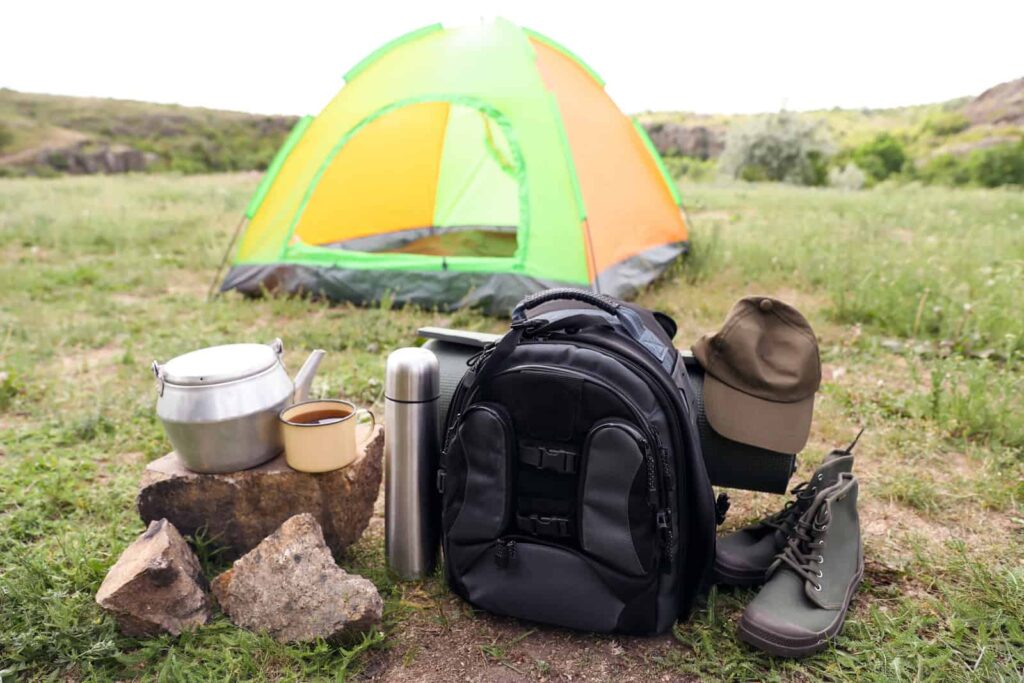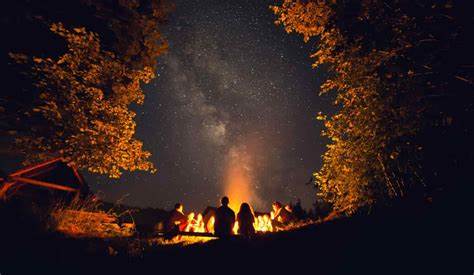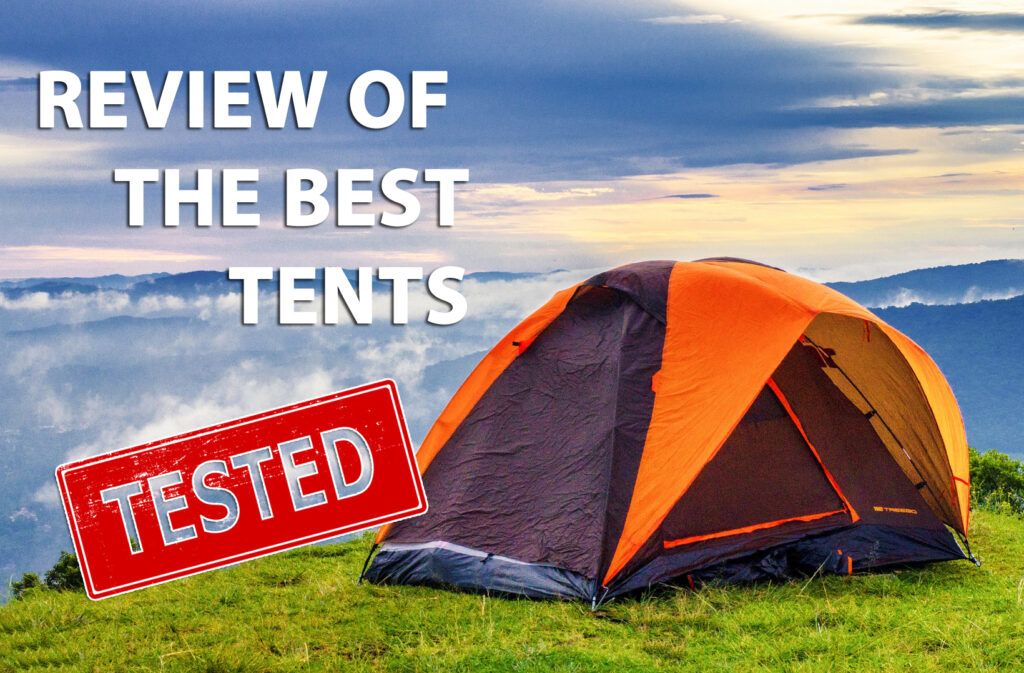When camping there are enough small things that are essential. Find the ultimate list here so you can think of everything on your next camping trip.
When camping you are in nature for several days and therefore you shouldn’t forget anything. There are enough little things that have turned out to be essential. The ones, but you and I have often left lying at home while camping. Regardless of whether you are traveling with a roof top tent or a ground tent, there are some important things that you must never forget.
We have been camping for many years, whether with our roof top tent or with a ground tent. This enables us to give you a lot of helpful tips based on our experience.
I’ll give you the ultimate list here so you’ll think of everything on your next camping trip.
Table of Contents
WHAT SHOULD YOU NOT FORGET WHEN CAMPING?
What is important and what is not always depends on the respective personality. There are people who only sleep with a sleeping mat under a tarpaulin or people like us who love roof top tent camping. But there are also those who take their straighteners with them to the campsite.
You see, it depends on your preferences. Nevertheless, I would like to briefly answer the question of what should not be forgotten when camping.
Most people usually take the appropriate cooking utensils, groceries, and clothing with them. Of course, overnight equipment such as a tent, sleeping mat and sleeping bag should not be missing. A first-aid kit, the right hiking equipment, travel documents as well as ID and passport are just as important.
Either way, it doesn’t matter if you take too much or too little with you to camp.
The main thing is that you feel comfortable and enjoy your vacation.
This guide is only meant to give you a guide to what most people take with them when camping. You are free to choose what and what not to pack in your backpack.

EVERYTHING AROUND COOKING
For me, food is the most important thing when camping. After all, you are out in the fresh air and in nature all the time. This burns a lot of calories, all of which have to be replenished.
Still, you don’t have to lug half of your kitchen with you to camp. A few basic principles are sufficient.
Gear
- 2 pots (depending on how many people you are.)
- 1 pan
- Plate
- Cutlery
- 1 cutting board
- 1 sharp knife
- gas cooker (also think of the gas!)
- Dishcloth and one to dry off
- Dishwashing detergent (A natural soap is best in nature, without a lot of chemicals.)
- Kitchen roll
- Wooden spoon
- Cups
- Trash bags
- Cans or boxes for storage
- Cooling box
Many kitchen utensils can now be bought especially for camping. These have the advantage that they can be stacked one inside the other and are robust and light. But you can also easily take your things with you from home.

FOOD AND SNACKS
When choosing food, it is especially important that it has a long shelf life and that it needs as little cooling as possible. However, if you take a refrigerator with you, that doesn’t really matter to you.
Also, you don’t have to carry too much groceries with you at first. Not that they spoil after all. Better to start with a little less, because you can go shopping at any time.
However, you should keep certain basic foods in mind.
- Spices (especially salt and pepper)
- Oil
- Vinegar
- Butter or margarine
- Jam, honey, nougat cream
- Toasted bread or other durable bread
- Potatoes, pasta, rice
- Fruits and vegetables that have a long shelf life (apples and carrots are good.)
- Ready-made sauces (homemade or bought.)
- Ketchup and mustard (especially important for grilling!)
- Oatmeal or granola
- Milk
- Water
- Cocoa powder
- Dried fruit
- Granola bar
- Pretzel Sticks
- Cookies
- Sugar
- Coffee, tea
Which food you take with you depends of course on your taste. However, on the list are the basics that can be found on almost every camper.
Above all, you should think of enough water. If you sleep in nature rather than on a campsite, it is recommended that you bring a canister with you. You can of course always refill your supplies at a campsite.
If you are out and about in pure nature, I give you the tip to always park near the water. A river or lake works best. You can then use the water for showering or rinsing off.
If you want to have a barbecue on your camping trip, then you shouldn’t forget the following things.
GRILLS AND CO.
- Grill (smaller outdoor grill)
- Grill lighter
- Charcoal or wood
- Meat, cheese, vegetables
- Tongs
However, if you want to keep grilling simple, you don’t need a grill or tongs. Just sit down by the campfire (everything here for safety), take a stick and skewer the sausage on it. This saves you having to lug around a grill and, above all, cleaning it up.
This variant of grilling is also perfect for children. So you can easily grill your sausages yourself and have a lot of fun doing it.
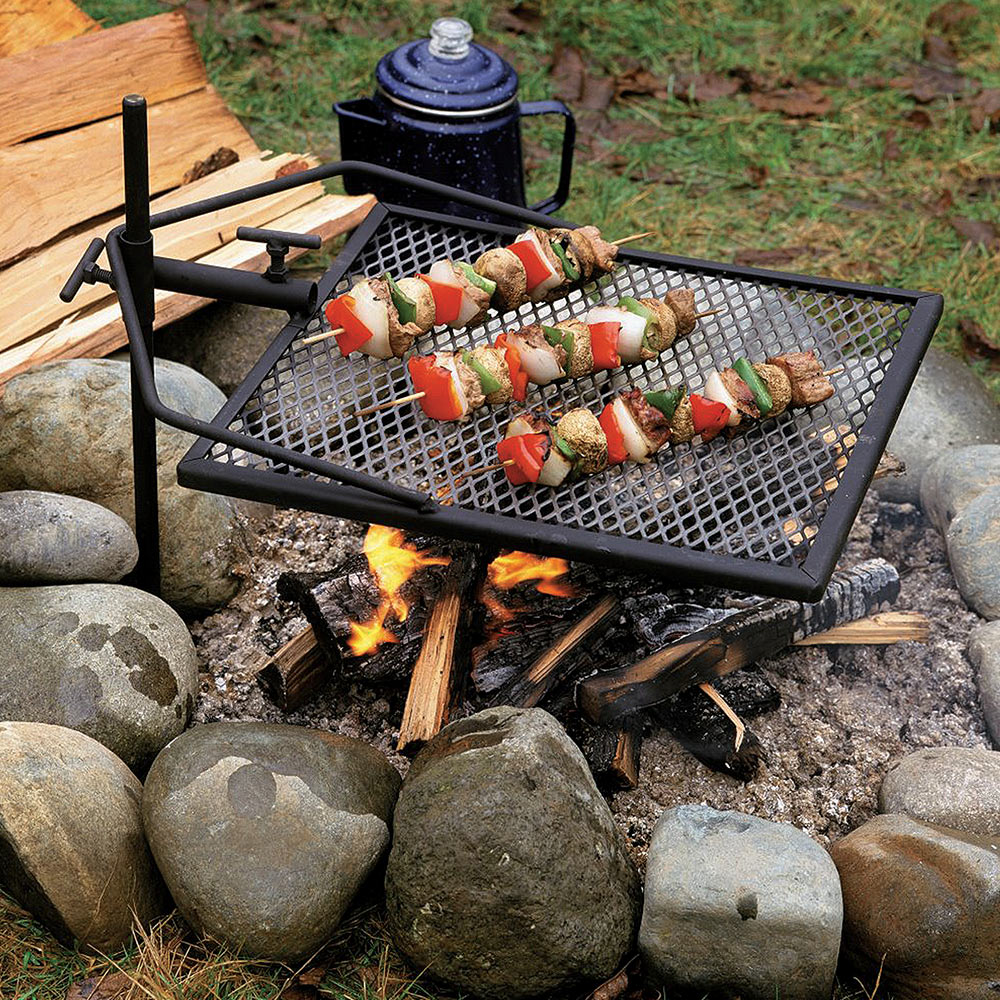
RELAXED DAYS AND NIGHTS
If you are out with the camper or tent for a long time, you will quickly notice how important a table and a chair can be. A small folding table and chairs are ideal. They are quick to set up and can be easily stowed away without taking up a lot of space.
Chairs and tables are not the only thing to think about, however.
SLEEP
- Sleeping bag or duvet
- Pillows
- Sleeping mat, camp bed or air mattress (unless you sleep in the bed of your camper.)
- Pegs and guy ropes for the tent (possibly also a tarpaulin if the tent is not water-repellent.)
- Fleece blanket for cold nights
- You should also think of sufficient lighting. After all, you have no light at night, except for the moonlight.
LET THERE BE LIGHT
- Candles
- Lamps to hang up (camping lanterns with solar batteries are best.)
- Headlamp (For going to the toilet at night.)

HYGIENE
When camping you will quickly notice that hygiene is being neglected. But that’s not bad. Showering every day is not healthy for the body anyway.
Nevertheless, there are a few items here that people tend to forget again and again.
- toilet paper and handkerchiefs
- Toothbrush and toothpaste
- Comb or brush
- Soap for washing
- Washcloths for quick cleaning
- A small towel
- Nail set
- Cotton swab
- Feminine hygiene items
It’s amazing, but that’s all you really need. Your body will thank you if it is not smeared with overpriced and chemical care products for a while.

THE RIGHT CLOTHING
When it comes to the choice of clothing, opinions are usually divided. You will also see here again that you absolutely do not need as much as you think.
You can put your clothes on several times. Even if you smell something, there is still no need to panic. After all, you are in nature.
However, you should adapt your choice of clothing to the weather.
CLOTHING
- Short pants
- 2 t-shirts
- 1 thick sweater for the evening
- Rain jacket
- Underwear
- Swimwear
- Functional underwear
- Trekking pants or coarser pants
- Sweatpants
- Hat or headband
- Sun hat at high temperatures
- Thick jacket at low temperatures
It is important that you choose your clothes in such a way that you can put them on using the onion principle. That means that you put on several layers. So you always have the option to take something off if it gets too warm.
The choice of shoes should also be carefully considered. When camping there can always be rainy days. Your shoes shouldn’t be completely soaked right after the first night.
SHOES
- Hiking boots
- Slippers or flip-flops to slip on quickly (these shoes are worth their weight in gold when camping!)
- Sandals
FOR AN EMERGENCY
Even if you don’t want it, accidents can happen again and again. Illnesses cannot be ruled out on vacation either. It is therefore always important that you have a certain basic supply of medicines and bandages.
TRAVEL PHARMACY
- Blister plasters and regular plasters
- Scissors
- Bandages
- Headache pills
- Something for nausea and diarrhea
- Mosquito repellent
- Tweezers for ticks
- Personal medication
OTHERS
A camping holiday is usually associated with hiking. Therefore, you should make sure that you think of everything here too. The right equipment is essential when hiking.
HIKEING
- Hiking shoes
- Hiking pants
- Backpack
- water bottle
- Snacks (Muesli bars or other snacks that can quickly provide you with a lot of energy.)
- First aid kit
But even in the tent or in the camper there are still a few utensils that are often forgotten at home.
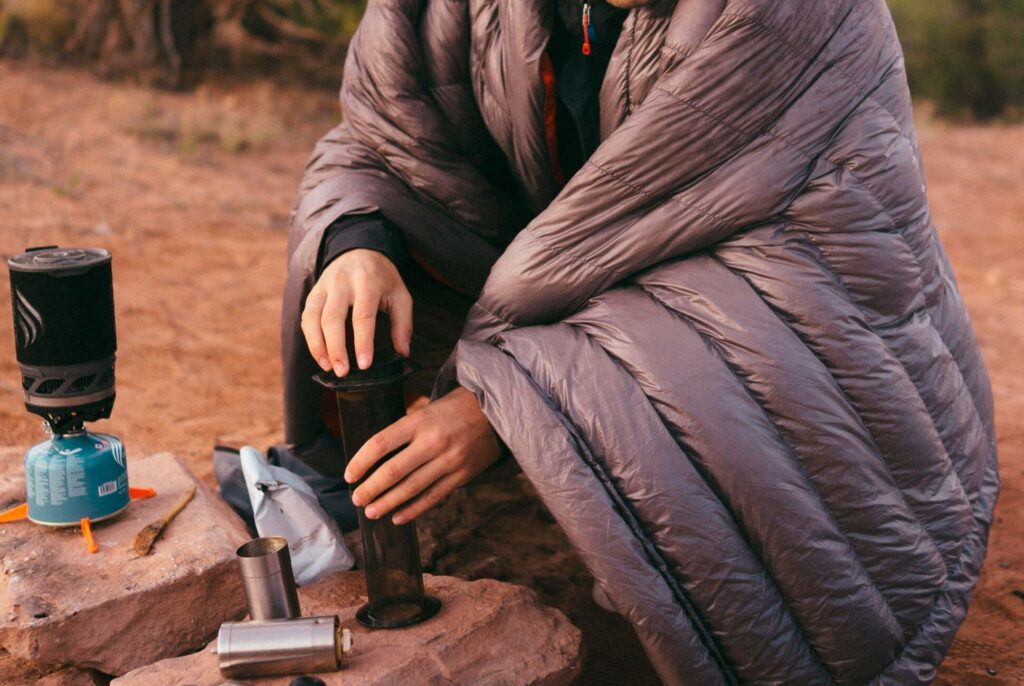
TECHNICAL GEAR
- Music speakers (to set the mood in case you are alone)
- charging cable
- Headphones (For quiet and relaxed nights despite snoring.)
- Extension cable
When you are traveling abroad, it is especially important that you bring the correct papers with you. In addition to your ID, your passport is also extremely valuable.
You should also think of money and the insurance card from the health insurance company.
Of course, if you are out with a dog, you have to think about it too. In addition to sufficient food and water, a place to sleep is necessary. The collar and the dog leash should also not be forgotten at home.
WHAT SHOULD YOU NOT TAKE WITH YOU?
In general, it is advisable to take things with you to camping that you are not so attached to. It can quickly happen that something breaks or gets dirty.
I would therefore leave light-colored clothes at home. Even important things that can get lost should be left at home or locked in the glove compartment.
Uncomfortable clothing is also disadvantageous. Jeans are not only uncomfortable, they also dry very slowly. Both of these two points to avoid taking them with you to camp.
Instead, opt for comfortable, breathable, and quick-drying clothing. The same applies to the shoes. Uncomfortable shoes should be left at home.
After all, you don’t want to have foot pain or a blister on your foot right after your first hike, do you?
HOW MUCH WATER DO YOU NEED CAMPING FOR A WEEK?
This question cannot be answered that easily across the board. It always depends on what you use the water for and whether you sleep in nature or on the campsite.
However, you have to expect that you will need at least 15 liters a week to drink if you drink two liters every day. If you also want to use the water for cooking, washing up or showering, you need between 8 and 14 gallons per week.

In order not to have to take so much water with you, it is advisable to wash yourself by the river or lake and wash the dishes there.
Of course, when you sleep at the campsite, you have a shower and the opportunity to refill your water bottle.
This information is now only aimed at those campers who are out and about in the great outdoors.
THE CAMPING PACKING LIST / CHECKLIST AS PDF DOWNLOAD
We have put together an extensive checklist for you, which you can download and then print out. With this checklist you can be sure that you always have everything with you for your next camping adventure.
Print out the checklist and go through all things calmly. You will find some things particularly important – others not. It depends on what is important to YOU.

